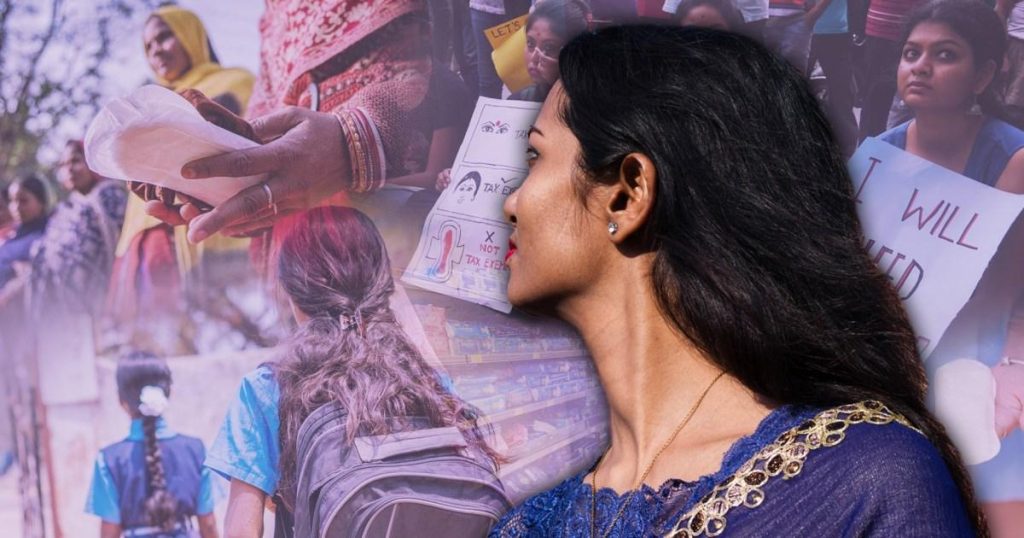The struggle of menstruating women in India, particularly in rural areas, is a stark reality characterized by period poverty, social stigma, and inadequate sanitation. Women like Nagamma, who resorted to using and reusing rags, endured the indignity of a laborious cleaning process, the constant fear of leaks, and the social shame associated with menstruation. This experience, coupled with the pervasive smell of blood, even affected her appetite. Her story echoes the experiences of countless women across India who face similar challenges related to menstrual hygiene. The lack of access to affordable sanitary products forces many to rely on unhygienic alternatives, impacting their health, dignity, and overall well-being. The arduous journey to procure sanitary pads adds another layer of difficulty, often requiring women to travel long distances, disrupting their work and daily lives.
The financial burden of managing menstruation is a significant factor contributing to period poverty. In India, a staggering one in ten girls under 21 cannot afford sanitary products. This economic disparity fuels the reliance on unsafe alternatives such as old rags, leaves, and other potentially harmful materials. A 2016 study revealed that only 36% of menstruating women in India use sanitary pads, highlighting the widespread prevalence of this issue. The limited access to affordable and hygienic products, coupled with the logistical challenges of obtaining them, creates a cycle of disadvantage for many women and girls. This cycle is further exacerbated by the social stigma surrounding menstruation, which often leads to exclusion from social and religious activities, impacting their social integration and opportunities.
The impact of period poverty extends beyond the individual level, affecting education and economic opportunities. For girls like Suma, a 22-year-old social worker, the need to travel 12 miles to purchase sanitary pads consumed valuable time and resources. The financial strain associated with purchasing these products can be particularly challenging for women in low-income families. Furthermore, the lack of proper sanitation facilities in schools contributes to the high dropout rate among girls, with an estimated 23 million girls leaving school annually after they begin menstruating. The absence of clean and private spaces to manage their periods, coupled with the fear of leaks and stains, creates an environment of discomfort and anxiety, hindering their ability to focus on their education.
The introduction of menstrual cups, such as those provided by Asan, a menstrual cup company, in partnership with Action Foundation, offers a sustainable and cost-effective solution to address period poverty. These organizations have documented the transformative impact of menstrual cups on the lives of women in over 100 villages in Karnataka. For women like Suma, the menstrual cup has not only provided financial relief but also empowered her to participate more fully in her daily life. The cup eliminates the need for frequent purchases and long journeys to acquire sanitary products, freeing up time and resources. This newfound freedom allows women to engage in activities they previously avoided due to the fear of leaks and discomfort, such as work, social gatherings, and religious ceremonies.
The social stigma surrounding menstruation in India adds another layer of complexity to the issue. The silence and taboo surrounding periods contribute to a lack of awareness and understanding, even among young girls. A study by the University of Warwick found that 71% of adolescent girls in India are unaware of menstruation until they experience it themselves. This lack of knowledge can lead to fear, shame, and anxiety surrounding menstruation. Deepika, a 15-year-old student, described the distress she experienced due to the fear of leaks and stains at school, highlighting the mental health implications of this stigma. The lack of open conversations about menstruation perpetuates misconceptions and reinforces the notion of periods as something to be hidden and ashamed of.
The stories of Nagamma, Suma, Sushila, and Deepika, as documented by Asan and Action Foundation, illustrate the multifaceted challenges faced by menstruating women in India. Their experiences underscore the urgent need for comprehensive interventions that address both the practical and social dimensions of period poverty. Access to affordable and hygienic menstrual products, coupled with improved sanitation facilities and education about menstruation, are crucial steps towards empowering women and girls to manage their periods with dignity and confidence. Breaking the silence and stigma surrounding menstruation is equally important to create a supportive and inclusive environment where women and girls feel comfortable discussing their experiences and seeking the necessary support. The work of organizations like Asan and Action Foundation demonstrates the potential of innovative solutions and community-based initiatives to address this critical issue and improve the lives of women and girls across India.




